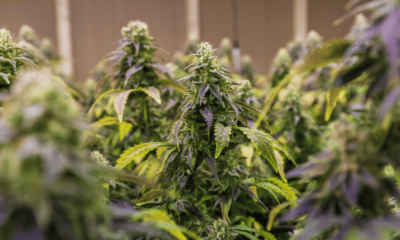Could cannabis help mitigate some of the liver damage caused by excessive alcohol consumption? A recent study suggests so.
Cannabis is often touted as a less harmful alternative to alcohol, and now a new study has found that the compounds found in the plant may actually reduce some of the liver damage caused by excessive alcohol consumption.
According to the findings, cannabinoids were shown to reduce toxicity in the liver caused by ethanol – the chemical compound found in alcohol.
The outcomes have led those behind the study to conclude that they could even be a potential treatment for impaired liver function, also known as hepatotoxicity.
For the study, researchers investigated the protective effects of cannabinoids against ethanol (EtOH)-induced liver toxicity in rats.
The animals were divided into seven groups, all of which were treated with different combinations of ethanol and cannabinoids.
READ MORE: Cannabis no more of a risk than tobacco and alcohol – study
An analysis revealed that the groups which were treated with higher doses of cannabinoids demonstrated a reduction in inflammation in comparison to the animals treated only with ethanol.
The authors note that levels of COX-2, CD-14, and MIP-2 inflammation markers showed a ‘remarkable decrease’ in the groups treated with cannabinoids, compared to control groups.
Further analysis showed that the cannabinoids acted as inhibitors to the mitogen-activated protein kinase pathways, which are involved in cellular responses to stimuli, such as mitogens, osmotic stress and proinflammatory cytokines.
The study concludes: “Our findings suggest that CB [cannabinoids] is a potential candidate for the treatment of alcohol-induced hepatotoxicity.”
Previous research
Previous studies have investigated the potential of cannabinoids, particularly CBD as a therapeutic treatment for alcohol use disorder and alcohol-induced damage to the liver and brain.
One study from 2019 found that CBD not only reduced drinking in those with alcohol use disorder, but also reduced alcohol-related steatosis and fibrosis in the liver, ‘modulating inflammation’ and reducing oxidative stress.
Elsewhere, researchers from the University of Colorado at Boulder and Colorado State University explored the relationship between cannabis use and alcohol intake in people who were enrolled in an alcohol treatment programme.
The findings, published in the journal, Addiction, reported that on days when these participants consumed cannabis, their alcohol intake fell significantly. This trend was consistent among those who used heavy amounts of cannabis as well as among those who used only light amounts of cannabis occasionally.
Home » Science » Cannabis can reduce liver damage caused by alcohol – study

 News6 months ago
News6 months ago
 Science5 months ago
Science5 months ago
 Industry6 months ago
Industry6 months ago
 News6 months ago
News6 months ago
 News5 months ago
News5 months ago
 Health5 months ago
Health5 months ago
 News5 months ago
News5 months ago
 Health3 months ago
Health3 months ago












